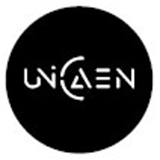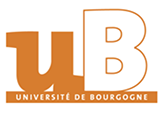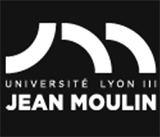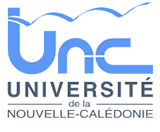Introduction
The University of New Caledonia is a public comprehensive university in New Caledonia, France, located in the capital Noumea and Cones. Its predecessor was the French Pacific University established in 1987 and became independent from the university in 1999.
Overview
Student size: about 3,000 local and international students are enrolled each year.
Faculty: has about 100 professors and researchers and 100 administrative staff.
History
In 1987, the French Pacific University was established, which has a center in French Polynesia and New Caledonia.
Between 1992 and 1995, the Department of Science and Technology and the Administrative Services Department of Nouvel, located in one of the neighborhoods of Noumea, continued to develop and expand.
In 1994, the University of New Caledonia built a student dormitory on campus and expanded it in 2003 to accommodate international students.
1997 In 2000, it was decided to separate the two parts of the French Pacific University into independent universities.
In 1999, the University of New Caledonia and the University of French Polynesia were officially established.
On May 1, 2009, the Teacher Training College of the University of New Caledonia, established in 1990, was merged into the University of New Caledonia.
In 2012, the former Magenta Campus in Noumea closed.
On July 17, 2020, the branch campus in the northern town of Cones was officially opened.
Founded in 1987 as part of the French Pacific University, in 1999 In 2000, it officially became independent and became the University of New Caledonia.
School Strength
Teaching Quality: It provides college, undergraduate, master, doctoral and continuing education courses, covering many professional fields such as law, economic management, literature, physical chemistry, engineering science, foreign languages, literature and culture, etc. It focuses on the combination of theory and practice to provide students with comprehensive education and training.
Scientific Research Level: As an important local scientific research institution, it actively carries out various scientific research projects, promotes discipline development and knowledge innovation, and its scientific research results have promoted the social and economic development of New Caledonia to a certain extent.
Institutional Nature
Public higher education institution.
Educational Philosophy
Committed to providing initial and continuous learning opportunities to promote students' all-round development and lifelong learning.
Emphasis on the combination of research and teaching, so that the teaching content is closely linked to reality, and cultivate students' innovation and practical ability to meet the development needs of New Caledonia.
Focus on international cooperation and exchanges, encourage the flow of teachers and students, and promote French teaching and French culture.
Key Laboratories and Disciplines
Key Laboratories: There is an interdisciplinary education research laboratory (Laboratoire Interdisciplinaire de Recherche en Éducation, LIRE), focusing on conducting educational research on the environmental and cultural characteristics of New Caledonia and Oceania.
Key disciplines:
Law, Economics and Management: including majors such as law, economic management, etc., focusing on cultivating students' professional qualities and practical abilities in the fields of law, economics and management, and providing talents for local legal, commercial and financial industries.
Literature, Language and Humanities: covering majors such as English, French literature, regional languages and culture, geography and planning, history, etc., cultivating students' research and practical abilities in the fields of humanities and social sciences, and inheriting and promoting local and world culture.
Science and Technology: with majors such as physical chemistry and engineering science, it conducts cutting-edge research and teaching in related fields to provide support for local scientific and technological development and industrial upgrading.
Department
The school has 3 departments, 2 colleges and 1 technical institute, as follows:
Department of Law, Economics and Management: provides bachelor's and master's degree courses in law, economic management and other majors, and cultivates students' professional knowledge and practical skills in the fields of law, economics and management.
Faculty of Literature, Language and Humanities: covers humanities and social sciences such as literature, language, history, geography, sociology, etc., focusing on cultivating students' humanistic qualities and cross-cultural communication skills.
Faculty of Science and Technology: includes mathematics, physics, chemistry, biology, computer science, engineering and other majors, providing students with solid science and engineering education and cultivating students' scientific and technological innovation capabilities.
Faculty of Education: responsible for teacher training and the cultivation of educational professionals, providing strong support for the development of education in New Caledonia.
Doctoral School: undertakes the task of training doctoral students, carries out high-level scientific research projects, and promotes cutting-edge research in disciplines.
Ranking
Ranked 4216th in the Weber-Metrics Global 12,000 University Ranking (2013.1) and 61st in the Weber-Metrics Oceania University Ranking (2015).
Expenses
The specific tuition fee of the school is not clearly found, but as a French public university, the tuition fee is usually borne by the government, and students only need to pay the registration fee, which is generally around 170-300 euros for undergraduates and around 200-400 euros for masters and doctoral students.
Campus
Campus environment: The main campus is located in Noumea, and there is another branch campus in Kone. Noumea is the capital and main city of New Caledonia, with complete urban infrastructure and rich cultural activities, providing students with a good learning and living environment.
Teaching facilities: The school has modern teaching buildings, libraries, laboratories and other teaching facilities, which provide strong guarantees for students' learning and research. For example, the campus is equipped with advanced scientific laboratories for science and engineering students to conduct experiments and scientific research projects; the library has a rich collection of books and academic journals covering various disciplines to meet students' learning and research needs.
-

University of Angers
-

University of Caen Normandy
-

University of Bordeaux
-

Claude Bernard University Lyon 1
-

University of Burgundy
-

CY Cergy Paris University
-

Clermont Auvergne University
-

University of Artois
-

Jean Moulin University Lyon 3
-

University of Franche-Comté
-

Mesoamerican University
-

Istmo University
-

Mariano Galvez University of Guatemala
-

Regional University of Guatemala
-

Galileo University
-

Francisco Marroquín University
-

Rafael Landívar University
-

University of the Valley of Guatemala
-

University of San Carlos of Guatemala
-

Technological Institute of Tlaxcala Plateau
-

Golfo University
-

Technological University of South Sonora
-

Technological University of Huejotzingo
-

Tizimín Institute of Technology
-

Chilpancingo Institute of Technology

